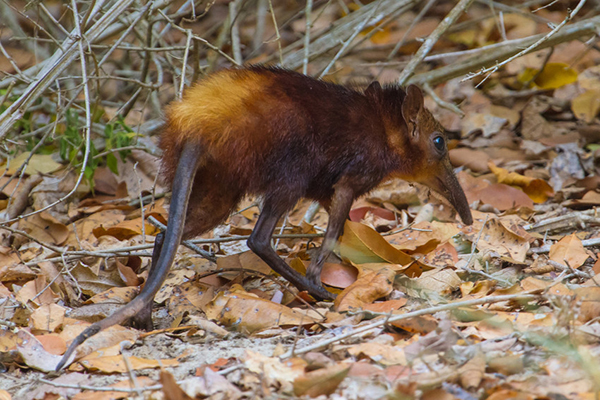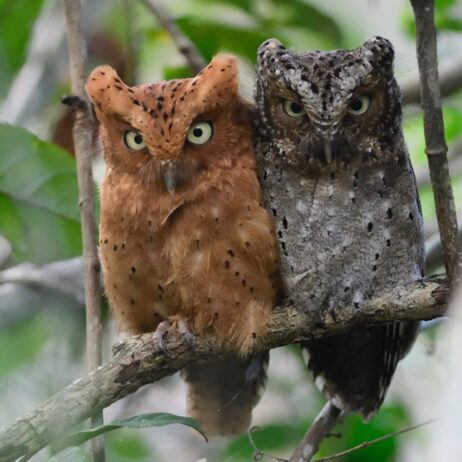
Simon Barnes considers the distinctive traits of the Golden-rumped elephant shrew in his latest post in his blog series, Barnes’s Bestiary.
There’s a wild and wacky chunk of forest in Kenya where nature has gone a bit nuts. Instead of being content with the usual run of species that you find all over this vast and thrilling continent, it has come up with a bunch of special ones all of its own.
One of these is the golden-rumped elephant shrew, which is neither a shrew nor an elephant, though it looks a bit like a shrew and is related to elephants, though not closely. I recognised it at once when I saw it, because it had a golden rump.
There are around 19 species of elephant shrews, all of them in Africa, but only one of them has a golden bum. Quite why elephant shrews in and around the Arabuko Sokoke forest need to have gold bottoms is one of those eternal mysteries of life.
Apparently it helps them not get eaten, which is always a good survival strategy: the gold draws the eyes of the predators away from the more vulnerable head end and towards the fleeing bum, which has thicker skin and is a less crucial place to take a hit.
Not that they’re easy to catch: the one I saw was going like the clappers, they can hit speeds of 28 kph, 18 mph, which is quite a turn of foot for something you can hold in your cupped hand. But here’s a thing: should a golden-rumped elephant shrew spot a predator, it will go the trouble of informing the predator of that fact, tapping the leaf litter to make a sound. It means: “I’ve got your number, pal. Don’t bother chasing me: waste of both our time.”
Like most elephant shrews, the goldbums are monogamous, jointly defending a territory which they will guard together for life, raising more goldbums in its heart as they do so. They build a series of nests, up to half a dozen of them, and move from one to another on a random basis: no habits to make them vulnerable to those predators.
Some of life’s miracles are as a big as a blue whale. Others you can hold in your cupped hand. And they’re all pure gold.
More information
These curious creatures are threatened by the loss of their forest habitat. Help us save 810 acres of Kenya’s vulnerable coastal forest to secure the future of the Golden-Rumped Elephant Shrew and other endangered species, including Clarke’s Weaver and the Sokoke Scops Owl.
Buy an Acre for £100 (half an acre for £50 or quarter of an acre for £25) and your donation will enable our partner, Nature Kenya, to protect this precious forest.
